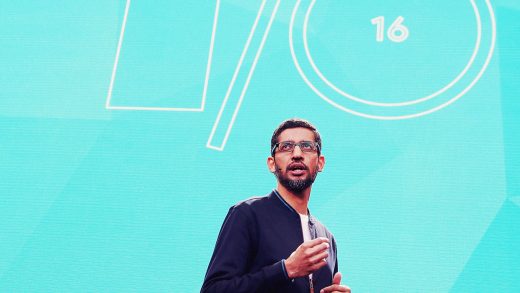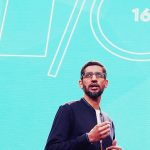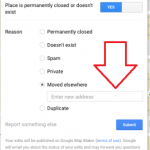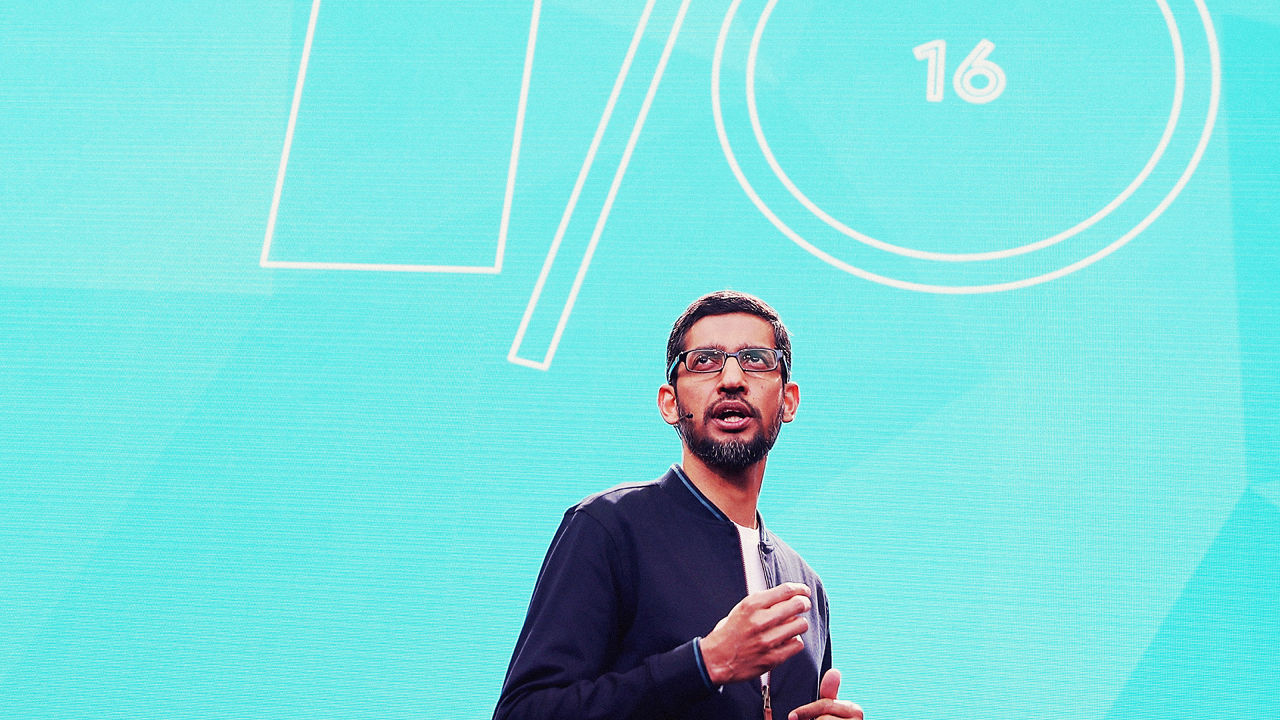This Year’s Google I/O Is All About Lowering Barriers
When Android was a baby operating system no more advanced than a mini Eclair or kiddie cup of FroYo, new versions routinely introduced expansive capabilities aimed at power users. But now that Android has passed Marshmallow, it’s seeing its relentless march mellow. This week at Google I/O, the news about the upcoming Android N update centered more on refinements than new features.
For a few years at its developer conference, Google has touted Android One, a reference platform for inexpensive phones. It hasn’t made much headway in developing economies, but those markets have embraced Android anyway. Google’s mobile operating system has lowered the economic barriers that have prevented millions from acquiring smartphones. The company has also supported efforts to make Android phones work well with the slower wireless connections in many countries.
At this year’s I/O, there was also a focus on lowering barriers, but in ways that go beyond device and data costs. These new steps start with a pair of communication apps. While messaging apps have been some of the most popular among consumers, Google hasn’t had a particularly strong showing compared to apps such as WhatsApp, Facebook Messenger, and China’s WeChat. The company’s latest entry is Allo, a pretty standard emoji-and-sticker-laden affair that is also in step with the recent chatbot trend of integrating an assistant.
Google also introduced Duo, a video chat app that offers video previews of callers. In a throwback to SMS (or at least Apple’s FaceTime), both Allo and Duo dispense with the need for a Google account and use the phone number to connect communicating parties. They come on the heels of Spaces, a mobile and web app designed for impromptu topical chats.
All of these apps are—no surprise—free. Unlike apps, hardware devices have an inherent barrier to adoption in that they cost money. But Google made moves to lower the fences here as well. For Android Wear 2.0, it’s removed the requirement to constantly pairing your smartwatch to a phone, and now supports native apps and both Wi-Fi and cellular connectivity. For Android Auto—its in-car platform that has been caught between a long vehicle replacement cycle and a tiny car audio aftermarket—it will allow phones to function as Android Auto screens, bypassing the need to have Android Auto built into the dashboard.
Neither move will dramatically alter the course of these platforms. However, as Android enters middle age, it hasn’t given up on all excitement. The most visually compelling showcase that Google trotted out was a new virtual reality initiative called Daydream. A significant upgrade from the cheap, democratizing Cardboard, Daydream was announced in conjunction with a number of content and handset partners,

Google’s second take on VR ups the visual quality and responsiveness of the experience and introduces a standardized controller. There was little word on how much the headset and controller will cost. But while they will assuredly be more expensive than Cardboard, they stand to be far less expensive and more convenient than high-end PC-based systems such as the Oculus Rift and HTC Vive.
The ultimate adoption barrier that Google battled at I/O dates back to the dawn of modern-day app stores: the need to install apps at all. Android Instant Apps are a way to modularize code that can provide a full experience of an app without having to download and permanently install it (although that’s an option). Developers will have to revise their wares to make them compatible with Instant Apps, but you won’t need to update your phone: The new technology will work with versions of Android dating back to Jelly Bean.
With easier communications, easier high-quality VR, easier wearable and car-tech adoption, and easier app experiences, Google has focused less on new functionality and more on reducing the effort associated with adopting new products and performing typical tasks. Google CEO Sundar Pichai closed the company’s far-flung array of announcements by discussing the future of artificial intelligence and how Google’s AlphaGo victory is an early harbinger of AI breakthroughs to come. No doubt some of these new heights of computing achievement will help companies like Google lower the bar for everyday use of technology even further.
Fast Company , Read Full Story
(19)














